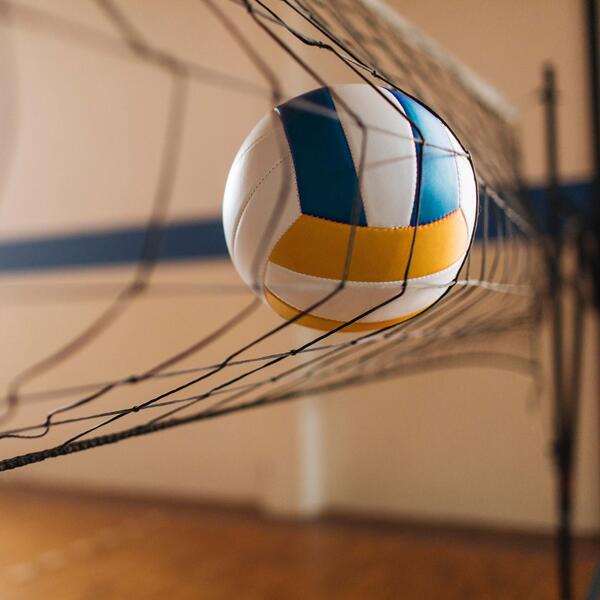Releases
WADA Executive Committee endorses CRC recommendation to continue applying conditions of RUSADA compliance

The Agency commences Moscow Laboratory data authentication phase
Today, the Executive Committee (ExCo) of the World Anti-Doping Agency (WADA) decided to continue applying the conditions outlined in its 20 September 2018 decision that the Russian Anti-Doping Agency (RUSADA) must fulfill to maintain compliance with the World Anti-Doping Code (Code), after endorsing a recommendation of WADA’s independent Compliance Review Committee (CRC) during an ExCo meeting held by conference call.
The CRC’s recommendation was noted and endorsed without dissent by the 11 members of ExCo who were on the call. Vice-President Linda Helleland noted for the record that she maintained her position from September that RUSADA should have been asserted as non-compliant until the process was complete.
On 20 September 2018, the ExCo resolved to reinstate RUSADA to the list of Signatories compliant with the Code and imposed the following post-reinstatement conditions:
- WADA to conduct a compliance audit of RUSADA’s operations within four months of reinstatement.
- RUSADA and the Russian authorities to procure that the authentic Laboratory Information Management System (LIMS) data and underlying analytical data relating to the testing procedures carried out by the former Moscow Laboratory are received by WADA by 31 December 2018.
- Following WADA’s review of the data, RUSADA and the Russian authorities to procure that any re-analysis that is required by WADA of any of the samples that are still stored at the Moscow Laboratory is completed by a WADA-accredited laboratory by 30 June 2019.
During its meeting today, the ExCo considered the report from the CRC on progress against the first two reinstatement conditions. In short, the compliance audit was conducted on 11-12 December 2018 and the results were very positive. However, the data were not received by 31 December 2018. Usually, a Code Signatory is then given at least three months to correct that non-conformity before referral to the CRC, but in this case WADA followed the special fast-track procedure in Article 9.5 of the International Standard for Code Compliance by Signatories (ISCCS), referring the matter to the CRC immediately.
This was promptly followed by full cooperation by the Russian authorities, as a result of which an expert team (comprised of an independent forensic IT expert supported by two WADA staff) was given full access to the Moscow Laboratory and was able to make forensic images of all of the data from the laboratory instruments, from the back-up hard drives on the server, and from the separate LIMS database. The team also took forensic images of further data, including metadata, that will assist in the next phase of the process, during which WADA’s Intelligence and Investigations (I&I) Department, in cooperation with independent data forensic experts, will seek to confirm the authenticity of the data. This second phase may take two to three months.
Upon confirmation of authenticity, WADA will use the data to determine which athletes have cases to answer for breach of the anti-doping rules and will pass those files on to the relevant International Sports Federations (IFs) to bring the cases forward, while the Agency will keep its independent right to appeal to the Court of Arbitration for Sport any IF decision not to take a case forward.
WADA President Sir Craig Reedie said: “Today, the ExCo was pleased to hear of the significant progress that has been made in resolving the Russian doping matter since its decision in September last year to reinstate RUSADA under strict conditions. Collecting the all-important data is a critical step, and it was not easy to achieve. We are not yet at the finishing line and there is a lot more to do but undeniably we are much further along the track than we would have been without the September ExCo decision.
“We are now proceeding to the second phase of that decision, namely authenticating the data retrieved from the former Moscow Laboratory so that ultimately we can use them to catch more athletes who cheated and to exonerate others. We will not be deterred from this mission, which we firmly believe is in the best interests of clean sport and of athletes worldwide.
“Several members of the ExCo voiced their disappointment that the deadline had been missed but agreed that no sanction in that regard should be imposed. Above all, we want to ensure that those who cheated are held to account. That is what the September ExCo decision was all about, and I hope athletes and others see that we are making good progress in that regard.”
The CRC considered whether any sanction should be imposed for not meeting the 31 December deadline, but noted that in all other cases, corrective action after the specified deadline but before the CRC or ExCo meeting in question has been accepted. This is consistent with the view of stakeholders, stated expressly in the ISCCS, that formal non-compliance proceedings against a Code Signatory should be a ‘last resort’, pursued only after the Signatory has been given several opportunities to correct non-conformities. The CRC acknowledged the call from some quarters for a different response in this case, but its recommendation was that RUSADA should be treated no differently from other Signatories in this respect.
It should be noted that, as it seeks to authenticate the data, WADA’s I&I Department will submit progress reports every two weeks to the CRC. If, at any point, it is reported that the data have been tampered with, the CRC will convene without delay to review the facts.
CRC Chair Jonathan Taylor QC said: “If that review were to confirm tampering, the CRC would consider that to be extremely serious non-compliance and can be expected to recommend that WADA pursues the most stringent sanctions set out in the ISCCS.” This was noted to the ExCo members for their information only but no decision was required at this time.
Similarly, if during the third phase (determining which athletes have a case to answer), the Russian authorities do not comply with requests for re-analysis of any of the samples stored at the Moscow Laboratory, the CRC will follow the same process and come back to the ExCo with an appropriate recommendation.
In parallel, WADA will continue monitoring RUSADA to ensure that it is effective, robust and independent in its operational decisions and activities; that it demonstrates good governance, accountability and transparency; and that it operates in an environment that is free from undue external influence.
Editors’ notes:
WADA’s Foundation Board declared RUSADA non-compliant in November 2015, following revelations of widespread doping in Russian sport that were exposed via WADA’s independent Pound Commission and subsequent McLaren Investigation.
The 12-member ExCo is WADA's ultimate policy-making body, which is composed equally of representatives from the Olympic Movement and Governments of the world. The six-member CRC is an independent, non-political body that provides advice, guidance and recommendations to the ExCo on compliance matters. The CRC is chaired by Jonathan Taylor QC from Bird & Bird.
As a complement to the above, please see:
- A Questions and Answers document;
- A flowchart that summarizes the three phases of the RUSADA Compliance Process; and
- A WADA document that summarizes ‘Progress of the Anti-Doping System in Light of the Russian Doping Crisis’

